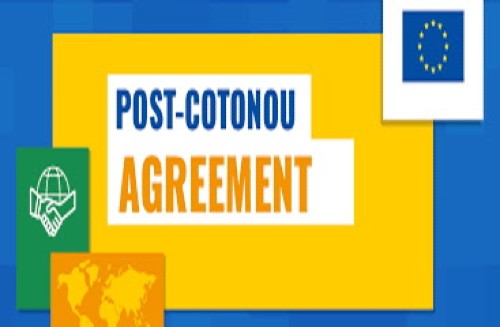BRIDGETOWN, Barbados – A new accord will be officially signed in “the coming months” by the European Union and the 79-member Organisation of African, Caribbean and Pacific States (OACPS), it has been officially announced.
 The Council of the European Union last week gave the greenlight to the new partnership agreement that will replace the Cotonou agreement that was signed in 2000 and regarded as the backbone of the partnership between the EU and the OACPS, while contributing to the eradication of poverty, supporting the sustainable economic, cultural and social development of the partner countries as well helping with the progressive integration of their respective economies into the world economy.
The Council of the European Union last week gave the greenlight to the new partnership agreement that will replace the Cotonou agreement that was signed in 2000 and regarded as the backbone of the partnership between the EU and the OACPS, while contributing to the eradication of poverty, supporting the sustainable economic, cultural and social development of the partner countries as well helping with the progressive integration of their respective economies into the world economy.
The EU Council said that the provisional application of the new accord, which would also be for 20 years, will start on the first day of the second month after the signature.
The new deal covers a wide range of areas, from sustainable development and growth, to human rights and peace and security.
“The EU and the OACPS represent over 1.5 billion people and more than half of the seats at the United Nations. With this new agreement, we will be better equipped to address emerging needs and global challenges, such as climate change, ocean governance, migration, health, peace and security,” said Josep Borrell, High Representative for Foreign Affairs and Security Policy in the EU Council.
The EU said that this new agreement aims to strengthen the capacity of the parties to address global challenges together, including through cooperation in international fora, in a modernized framework.
It lays down common principles and covers several priority areas including human rights, democracy and governance, peace and security, human and social development, inclusive sustainable economic growth and development as well as environmental sustainability and climate change migration and mobility.
The EU said that the agreement includes a common foundation, which applies to all parties, combined with three regional protocols for Africa, the Caribbean and the Pacific (ACP) with a focus on the regions’ specific needs.
The ACP-EU partnership is one of the oldest and most comprehensive frameworks for cooperation between the EU and third countries.
The post-Cotonou negotiations started in September 2018 in the margins of the United Nations General Assembly in New York, with the aim to agree on a new, modernized treaty to succeed the Cotonou Agreement.
The chief negotiators reached a political agreement on the text of the new agreement in December 2020.
In June, the co-presidents of the ACP-EU Joint Parliamentary Assembly, Carlos Zorrinho of Portugal and Ana Rita Sithole of Mozambique, called for an expeditious signing of the post-Cotonou agreement after an agreement had been reached to extend the existing Cotonou Agreement for an additional four months so as to avoid a legal vacuum from July 1.
They said then that given the current global instability, the Post-Cotonou Agreement represents a beacon of stability and progressive thinking for the OACPS-EU partnership, making significant contributions to global governance.


